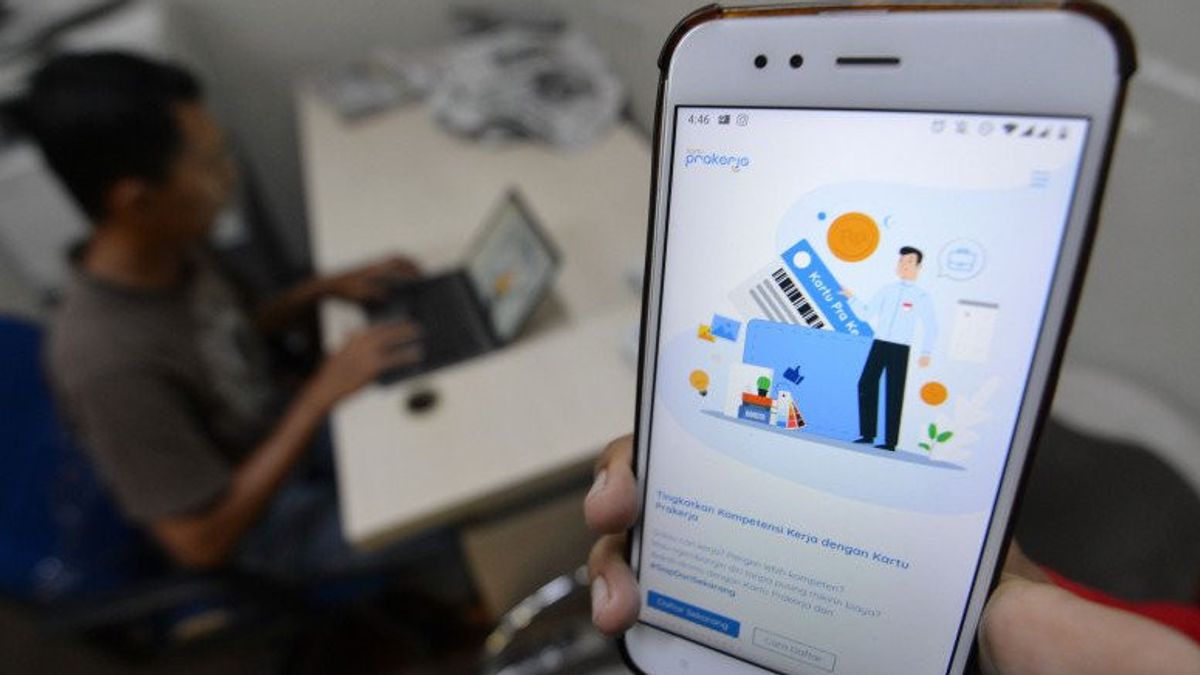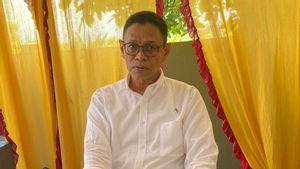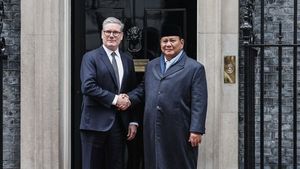JAKARTA - The government has decided to resume the Pre-Employment Card Program in 2021.
In fact, the budget for the program was increased to IDR 20 trillion from the previous IDR 10 trillion. Even so, this program is considered not very effective in boosting economic growth.
The Pre-Employment Card Program is part of the National Economic Recovery Program for the social protection sector. The plan, this program will target 2.7 million people in the first half of this year.
The Coordinating Minister for Economic Affairs Airlangga Hartarto assessed that the Pre-Work Card program encourages employment and entrepreneurship. The reason is seen from the results of the Evaluation Survey conducted by PMO for millions of pre-employment recipients that as many as 35 percent of recipients who were initially unemployed, at the time of the evaluation survey said that they had worked or had become entrepreneurs.
Based on the Central Bureau of Statistics (BPS) data for 2020, said Airlangga, it showed that 88.9 percent of pre-employment recipients stated that their work skills had improved and 81.2 percent stated that the incentives received were used to buy daily necessities.
He explained that the reason for the Pre-Employment Card program was to be continued after seeing the achievements in 2020. Last year, the Pre-employment Cards were distributed to 5.5 million recipients from 11 registration waves.
"We hope that the community can take advantage of this program, taking various job skills training and entrepreneurship that can provide life provisions during and after the pandemic", said Airlangga, Tuesday, February 23.
The Added pre-employment card program budget
Denni Puspa Purbasari, Executive Director of Executing Management for the Pre-Employment Card Program, said that the plan for the Pre-Employment Card program budget will be increased in 2021 to a total of IDR 20 trillion. Previously, the budget provided was IDR 10 trillion.
"The Vice Minister of Finance (Deputy Minister of Finance) said that the pre-employment budget will be increased in 2021 to IDR 20 trillion. He answered that the pre-employment card is considered a success", he said, in the Executive Director's Afternoon Talk with Media, Friday, February 26.
According to Denni, the reason is that the Pre-Employment Card program is the first program to use the on-demand application approach, so this program is considered right on target.
"Said the Deputy Minister of Finance because this is the person who registered himself, so it must be right on target. This is not registered by any institution, but for anyone who needs to register himself", he said.
Because of that, said Denni, the implementing management of the Pre-Employment Card program gives full control to the applicants, and the Pre-Employment Card recipients themselves to determine what is needed, such as what training to take and so on.
Pre-Employment Card for Everyone
The government re-opens registration for batch 13 of Pre-employment Cards next week. The registration for the batch 12 pre-employment card itself has closed this afternoon.
Denni said that the Pre-employment card program is not only for people who are unemployed but for everyone.
"So the pre-employment card for everyone is not just for the unemployed", he said.
Denni explained that the target of the workforce is divided into two, namely those who are working and unemployed.
"According to 2019 data, there are 12.35 million people working and the unemployment of 7 million", he said.
Focus on the Bottom 40 Percent group
Expert Staff for State Expenditure at the Ministry of Finance Kunta Wibawa Dasa Nugraha said the government this year will focus on the bottom 40 percent of the population.
"There are also several programs aimed at the upper-middle class, such as pre-employment cards, job loss guarantees, and others that can become a counter for the upper-middle class", said Kunta.
Because of that, he said, the Wage Subsidy Assistance program would not be included in the Social Protection National Economic Recovery (PEN) budget allocation in 2021. This decision was also taken after the government evaluated the sustainability of the program in 2020.
"In our evaluation, the Wage Subsidy Assistance (BSU) is that high-income groups get more benefits than low-income groups", he said.
BSU is More Effective in Boosting the Economy
Bhima Yudhistira, an economist at the Institute for Development of Economics and Finance (Indef), admitted that he regretted the wage subsidy assistance program was not continued. He said that the program was considered to be more effective in boosting economic growth because the funds were directly transferred and spent by the recipients.
Meanwhile, he said, the rules in the Pre-Employment Card required recipients to take part in training first before receiving cash funds. In addition, currently, many workers are experiencing salary cuts. Because of that, He supports the Wage Subsidy Assistance program to be continued rather than the Pre-Employment Card.
"Of course the accuracy of target recipients, as well as the expansion of BSU recipients to informal sector workers must be done", he said.
Bhima reminded the government to ensure that the pre-employment card recipients come from vulnerable workers, not those with a salary of IDR 5 million and above.
According to Bhima, the government also needs to ensure that participants who come from the informal sector and are in areas with low internet access, can become recipients of pre-employment.
The English, Chinese, Japanese, Arabic, and French versions are automatically generated by the AI. So there may still be inaccuracies in translating, please always see Indonesian as our main language. (system supported by DigitalSiber.id)









